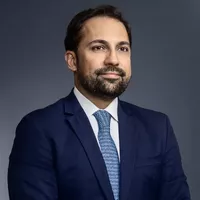- within Wealth Management topic(s)
On October 8 2024, Brazil enacted Federal Law No. 14,993/2024, which stems from Bill No. 528/2020, the "Fuels of the Future Bill." The new law, which addresses several matters related to decarbonization, provides for the regulation and inspection of activities involving the capture and geological storage of carbon dioxide, also known as CCS (Carbon Capture and Storage)—the first Brazilian framework to address this topic .
Under the new framework, the capture of carbon dioxide for geological storage, its transportation through pipelines, and the geological storage itself will be subject to authorization by the National Agency of Petroleum, Gas and Biofuels (ANP); the ANP will be in charge of issuing regulatory standards on the qualification of parties to carry out CCS operations as well as the conditions for granting or transferring the respective authorizations.
These authorizations will be valid for 30 years and may be extended for the same period or have their term changed when relevant to the public interest. For areas already under contracts granting exploration and production (E&P) rights, the ANP will only issue the CCS authorization after consulting with the holder of such rights (e.g., the concessionaire). Please note that, in the context of E&P, the injection and storage of carbon dioxide for the purposes of recovering hydrocarbons in reservoirs are not to be confused with standalone CCS operations.
Also, according to the provisions of the new law, several obligations are assigned to CCS operators, including:
- identifying, alerting and acting appropriately during an emergency;
- maintaining in a database, for a period to be determined by the ANP, records validated by a competent professional of all reports issued in relation to permanent CO2 storage; and
- conducting an inventory of carbon dioxide storage and leakage in order to, among other things, obtain carbon credit certification.
An important legal milestone, Federal Law No. 14,993/2024 paves the way for the development of CCS activities in Brazil with greater regulatory clarity and legal certainty. From the environmental standpoint, the preexisting framework is sufficient for addressing the environmental licensing of CCS activities, but the law will likely give rise to new regulations from the agencies within Brazil's National Environmental System (SISNAMA) containing CCS-focused details and improvements.
The Environmental, Climate Change and ESG practice of Tauil & Chequer Advogados, in association with Mayer Brown, is available for further clarification on this topic.
Visit us at mayerbrown.com
Mayer Brown is a global services provider comprising associated legal practices that are separate entities, including Mayer Brown LLP (Illinois, USA), Mayer Brown International LLP (England & Wales), Mayer Brown (a Hong Kong partnership) and Tauil & Chequer Advogados (a Brazilian law partnership) and non-legal service providers, which provide consultancy services (collectively, the "Mayer Brown Practices"). The Mayer Brown Practices are established in various jurisdictions and may be a legal person or a partnership. PK Wong & Nair LLC ("PKWN") is the constituent Singapore law practice of our licensed joint law venture in Singapore, Mayer Brown PK Wong & Nair Pte. Ltd. Details of the individual Mayer Brown Practices and PKWN can be found in the Legal Notices section of our website. "Mayer Brown" and the Mayer Brown logo are the trademarks of Mayer Brown.
© Copyright 2024. The Mayer Brown Practices. All rights reserved.
This Mayer Brown article provides information and comments on legal issues and developments of interest. The foregoing is not a comprehensive treatment of the subject matter covered and is not intended to provide legal advice. Readers should seek specific legal advice before taking any action with respect to the matters discussed herein.




